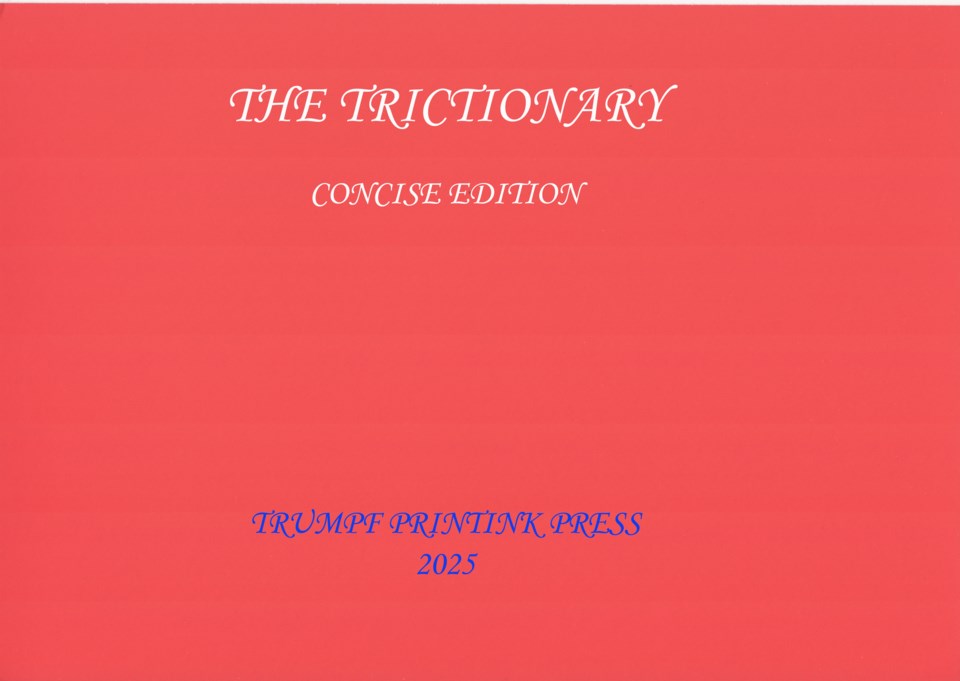People remarked on it already during his first term: Trump behaves as if he were an uncontrollable small child.
The worrying thing is that he now appears to be regressing even more.
When he plays with his little golf balls, he costs taxpayers millions of dollars.
All the while, the ranks of desperate, unemployed, hungry and enraged Americans are swelling.
Trump’s playroom has become the entire world where he indulges in his current favourite game – tariff poker.
Trump was born in June 1946, seven months after the end of World War Two.
He was learning to speak in the second half of the 1940s.
At that time, people still hadn’t healed from the horrors brought about by six years of war. He’ll have heard conversations peppered with negative sentiments about the enemies.
Whether or not he understood the words, they stayed with him. Trump is neither eloquent nor articulate. I suspect his word pool hasn’t grown all that much from where it was when he was a child.
He’s been using those negative-sentiment words to hit back.
Anything or anyone he thinks could harm him is "horrible" (from the Latin horribilis, meaning monstrous, fearful).
If someone is against him, they’re called "terrible" (from the Latin verb terrere, to fill with fear).
Do you see a pattern emerging? Trump is managing to turn the power of fear to his advantage.
Anyone he decides is bad, often because they blame him, is called "nasty."
The word is of uncertain origin. In the late 14th century, it meant foul, three centuries later it signified obscene, and by the 19th century, ill-tempered.
His go-to words for people who oppose him are evil (from Old English yfel meaning vicious, wicked ), crazy (in the 1570s it meant diseased; by 1610, demented), sick (from Old English seoc, feeble) and crooked (1200s, treacherous).
Very (rooted in the Latin verus, true) is used by Trump like a fist pump to drive his words home. He likes this adverb very, very, very much.
Occasionally, he adds words that go beyond the simple negative sentiment. For instance, a "radical left lunatic" describes a judge who rules against what Trump demands.
When he runs afoul of the law and ends up accused, or when the actions of his appointed officials are questioned, he cries "witch hunt."
The newest word in Trump’s vocabulary is garbage (by the 1590s, garbage meant offensive stuff), referring to people who carry out violence at Tesla dealerships.
There’s at least one word that he made up. No one seems to know for sure what, if anything, Trump intended with it.
Some have suggested it was a mistype of coverage – who doesn’t remember “covfefe,” tweeted on 31 May 2017?
Not all of Trump’s word pool is negative or misspelled. Anything he feels will be to his benefit is called beautiful. On April 7, the Washington Post let its readers know that Trump called his tariff plan “a very beautiful thing.”
The next day, he extolled “beautiful, clean coal” as he signed an executive order slashing regulations.
And, believe it or not, Trump even claims he has “beautiful hair,” as we can read in a report of April 10 in the New York Times.
Sabine Eiche is a local writer and art historian with a PhD from Princeton University. Her passions are writing for children and protecting nature. Her columns deal with a broad range of topics and often include etymology in order to shed extra light on the subject.
📣 Got an opinion on this story or any others in Richmond? Send us a letter or email your thoughts or story tips to [email protected].
📲 To stay updated on Richmond news, sign up for our daily headline newsletter.
💬 Words missing in article? Your adblocker might be preventing hyperlinked text from appearing.



